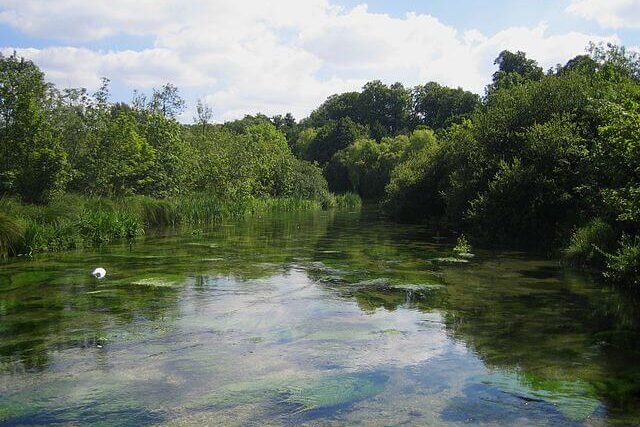
A study of one of the UK’s most important chalk streams has revealed significant levels of microplastics in its waters.
Fibres from clothing, particles from tyres and fragments of plastic were among the materials detected in the River Itchen in Hampshire.
“Finding huge amounts, huge numbers of fibres in that flowing river – it’s worrying – it’s absolutely worrying,” said Dr Corina Ciocan, principal lecturer in ecotoxicology at the University of Brighton, where the samples are sent.
“It points towards a constant contamination. It’s a chronic contamination that is ongoing every single day.”
Strands of fibreglass have also been found in samples analysed by Dr Lakhveer Ciocan’s laboratory.
“I’m used to finding those particles in estuaries and in the ocean. I point the finger towards poor boatyard practices or abandoned boats,” she explained.
“In a chalk river that’s a little bit scary and a little bit of an unknown. We need to dig a little bit and see where those are coming from.”
The discovery was made by the Upper Itchen Restoration Community Interest Company, a not-for-profit group working to improve water quality in the catchment.
The project began after microplastics were detected in the river during an experiment last year, prompting a more detailed investigation in partnership with the University of Brighton.
“The chalk streams are quite unique,” said company director Ian Diver.
“There are about 200 of them, most of them are in Southern and Eastern England and they’ve been compared to the Amazon rainforest in terms of their biodiversity and their abundance.
“It’s a real worry that we are finding these microparticles that shouldn’t be there.”
“For the past 70 years plastics have been part of everybody’s daily life,” said Mr Diver.
“But it’s only in the last 20 years we’ve actually realised, or we’ve begun to realise, what actually happens when plastics turn into waste.
“The thing to remember about plastic is it doesn’t breakdown most of it breaks up into smaller and smaller particles.”
Citizen scientists are now collecting samples along the river’s headwaters to identify the types of plastics present and to trace their sources.
The researchers also hope to understand how these microparticles are affecting the fragile chalk stream ecosystem.
The full findings of the study are expected to be published at the end of the year.
——————————————————————————
At Natural World Fund, we are passionate about restoring habitats in the UK to halt the decline in our wildlife.

